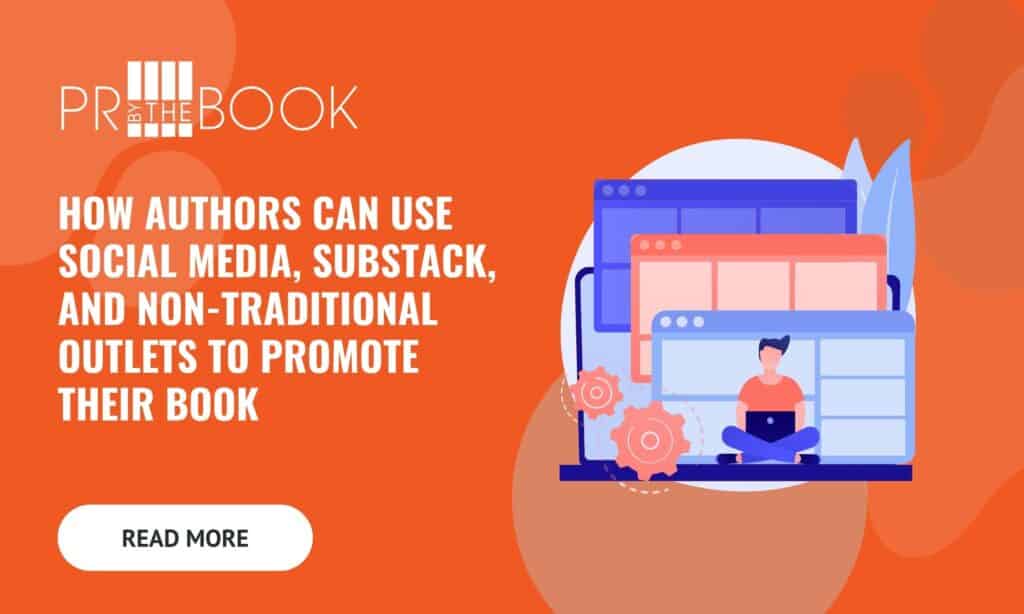How to Build a Strong Author Brand
-
Emily Williams
- Reading Time: 8 Minutes

SHARE
A well-defined brand is key to building a strong online presence, helping you connect with new readers while keeping your loyal audience engaged—even between book releases. But how do you begin crafting your author brand? Check out our top branding tips to develop a compelling and confident author identity.
Your Pen Name
Writing under a pen name—a name used by an author that’s not their real name—may not be for everyone, but for those who do want a pen name, it’s important to establish that early on. This way, as you continue publishing more books, your audience knows who you are and can recognize your books. It’s difficult to change your mind down the line, as then not only is your real name already out there in the writing world, but your books won’t all be under the same author name, which can lead to reader confusion.
Carefully consider whether you want a pen name before publishing your first book!
Tips for establishing a pen name:
- You want something unique, but not too over-the-top. Consider adding your (or a) middle name or initial to your name to differentiate you, especially if you have a common name. Adding your middle initial is generally a more popular practice than adding something to the end of your name.
- Make sure you look up your pen name to be sure it’s available before you commit. You don’t want to have something too similar to, or the same as, another author—especially if they’re writing in the same genre.
- Once you choose a pen name, that is your author name—you have to commit to it and use it across all your social media platforms, websites, and book covers to increase your digital real estate (so everything is tied together when someone is looking you up).
- It’s recommended that you keep your pen name consistent even when you’re publishing in different genres—again, this makes sure all your works are synced up. It’s okay for people to know that you write both sci-fi and non-fiction! There is one caveat to this rule—if you write romance and another genre, you may want to have a different pen name for your romance books to differentiate those. Otherwise, stick with your original pen name.
Building Your Brand
Don’t build your brand around your book—build it around you, the author.
Parts of your brand, yes, will reflect your book’s niche and the subject matter which you write about. A romance author will likely have a fair amount of red in their cover art and so should be on their socials, while a nonfiction money expert will likely go with greens. Your brand should reflect the themes, tone, and emotions that resonate with your readers, so identifying your target audience early is important. For example, a YA fantasy author targeting teens and young adults who enjoy immersive world-building and themes of friendship and self-discovery should incorporate these elements into your online presence. This author will have a very different approach to their branding than the romance author targeting adults whose book, and by extension online presence, will have a totally different feel and focus.
The importance of you.
Your audience is becoming increasingly skeptical of businesses, institutions, products, or anything that feels impersonal with the widespread misinformation and disinformation they come across daily, often from big brands with logos but no faces. Creating a brand as an author will make you more personable and allow people to connect more with you, increasing your credibility. You, as a person, are the brand producing books. But be a person before you’re a brand!
While books come and go, your identity as a writer—your voice, themes, and values—remains constant. A strong personal brand helps readers connect with you beyond the single title that initially drew them to you, making them more likely to follow your journey, get excited about future releases, and engage with your content. This consistency builds trust, fosters a loyal audience, and ensures that your platform remains relevant between book releases.
Be Consistent
It’s important to be consistent across social media platforms—remember how we talked about your “digital real estate” above? By being consistent with your author (or pen) name, fonts, colors, and everything else you post, it will be easy for your audience to connect with you across your different platforms (you should definitely have more than one social platform. We recommend 2 in addition to your website).
A professional author website serves as your home base in the digital world, giving readers, agents, and publishers a central place to learn about you and your work. It adds credibility, showcases your books, and provides a hub for important updates, events, and contact information. Unlike social media, which is constantly changing, your website is a space you can fully control, ensuring your brand remains consistent and accessible. A well-designed site makes it easier for readers to connect with you, join your mailing list, and stay engaged with your journey as an author long-term.
Consider creating a “brand standards” document. This is a document that will house all of this important information—fonts, colors, image types, names, profile handle. Make sure to refer back to this document as you are creating content to be sure you’re being consistent. Having this in place is also helpful if you have someone assisting with your website or social platforms.
There are a lot of people out there who will be interested in your work—unfortunately, not everyone will have good intentions when following you. With the rise of AI and ChatGPT, it’s becoming increasingly easy for people to mimic you in an attempt to piggyback off your success. We don’t want that! Linking your social profiles is an extra step that will allow your audience to feel confident about following you. Include links directly to each of your profiles on your website, and use sites like LinkTree to provide convenient links to your other platforms.
By having consistent usernames, tone, and aesthetics in your online presence, you give yourself more credibility and your audience can be confident it’s really you they’re following, interacting with, and supporting.
Establishing a strong author brand is essential for long-term success, and it starts with consistency across all platforms. Whether you write under your real name or a pen name, creating a recognizable identity helps readers connect with you beyond just one book. A cohesive brand includes consistent visuals, messaging, and tone across social media, making you easily identifiable and memorable. By focusing on your overall author persona rather than individual works, you build trust, foster reader loyalty, and maintain engagement between book releases, ensuring your presence remains strong in the ever-changing digital landscape.
Are you looking for help with branding yourself? Our book publicity experts can help! Contact us today for assistance in establishing your brand online.
Looking to learn more about online branding tips? Check out:
- 3 Ways to Build Authority as an Author
- 5 Tips to Leverage LinkedIn for Authors
- Ways to Repurpose Your Book Into Social Media Content
Emily Williams

How Authors Can Use Social Media, Substack, and Non-Traditional Outlets To Promote Their Book
How Authors Can Use Social Media, Substack, and Non-Traditional Outlets

Why Every Author Should Have a Podcast
Why Every Author Should Have a Podcast SHARE How podcasting

How to Maximize Media Hits: A Social Media Strategy for Authors
How to Maximize Media Hits: A Social Media Strategy for
